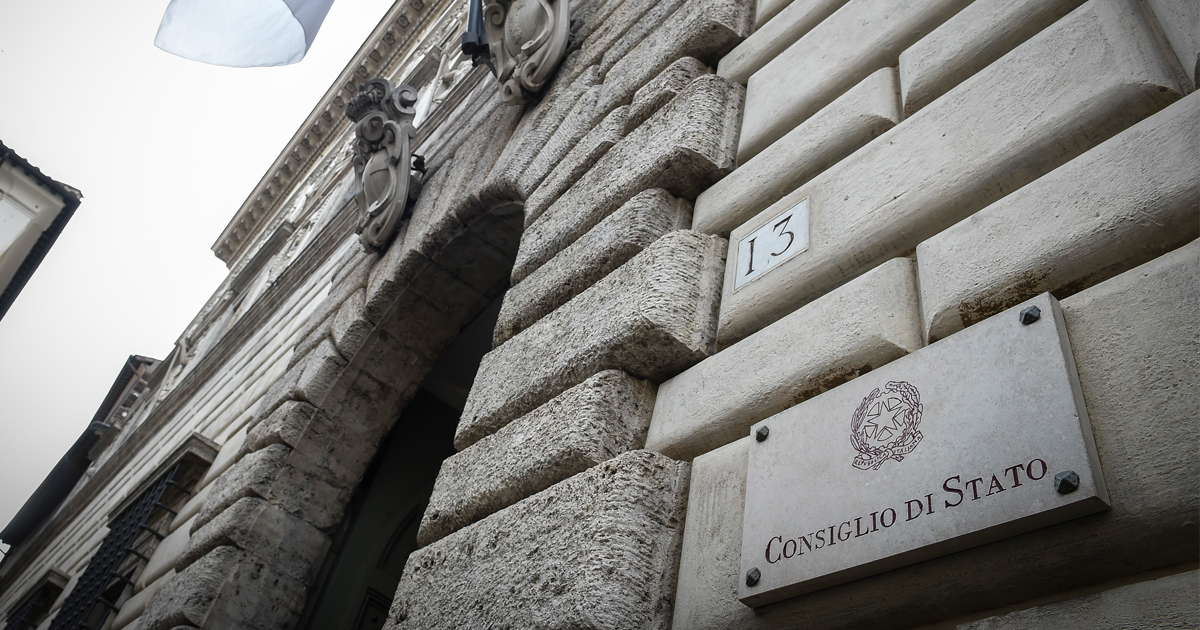The Council of State rejected - through a sentence - the appeal presented by a gaming room against the Ministry of the Interior, the Police Headquarters of -OMISSIS- and the Municipality of -OMISSIS-, in which the reform of a previous sentence of the Regional Administrative Court for Emilia Romagna regarding distance meters.
Below is the full text of the sentence: “Today's appellant, -OMISSIS- (formerly called -OMISSIS-), is the owner of the gaming and betting shop business pursuant to art. 38, paragraph 2, of the Legislative Decree of 4 July 2006, (...) with related activity of collecting the game using devices pursuant to art. 110, paragraph 6, letter. b), of the TULPS On 20 January 2020, following the update - approved with City Council Resolution no. -OMISSIS- – of the original 2017 mapping, the Municipality of -OMISSIS- communicated to -OMISSIS- the initiation of the procedure aimed at closing the activity of the said gaming and betting room, on the finding that the premises would be located remotely less than five hundred meters from an educational institution.
On 29 June 2020, during the emergency period due to the Covid-19 epidemic, the municipal authority communicated to the company concerned the six-month deadline, starting from the notification of the protocol document. n. -OMISSIS-of 20 January 2020, for the closure of the business, or for its relocation. Subsequently, the appellant presented further requests to obtain the extension of the closing deadline, depositing at the same time, in confirmation of its commitment to follow up on the notification, the rental contract relating to the property to which it assumed it wanted to transfer its business .
On 3 May 2020 -OMISSIS- produced a request, with which it asked the Municipality of -OMISSIS- to evaluate the release of a specific concession, pursuant to art. 103, paragraph 2, legislative decree 18/2020 and DGR n. 68/2019, in compliance with the provisions of said provisions regarding the protection of investments made and legitimate expectations. With a provision dated 18 May 2021, the Municipality of -OMISSIS- rejected the requests made by -OMISSIS-, on the assumption of the inapplicability, to the specific case, of the aforementioned regulatory provisions, granting the appellant a further six-month extension, with effect from 1 ° May 2022, for the relocation of the gaming room in question.
Finally, on 14 September 2022, today's appellant was notified of the provision with which the Municipality ordered the rejection of the extension request and the simultaneous closure of the gaming shop, as well as the return, within four days, of the public safety licenses , enabling game store activities. Today's appellant, in contesting the existence of the conditions for issuing the provision also in the part in which it was requested to return the public security licenses and requested, after suspension of its effectiveness, its annulment before the TAR for the 'Emilia Romagna.
In the first instance of the proceedings, only the Municipality of -OMISSIS- appeared.
The TAR for Emilia Romagna, with the order of 26 October 2022, rejected the precautionary application proposed by the appellant and, with sentence no. 345 of 24 May 2023, rejected the appeal.
The sentence was challenged by -OMISSIS- with an appeal notified on 16 June 2023 and filed on 20 June 2023, entrusted to two grounds of censure, with which it requested, after suspension of the enforceability, the reform of the same, with the consequent annulment of the deeds charged in the first instance.
The Ministry of the Interior, the Police Headquarters of -OMISSIS- and the Municipality of -OMISSIS- appeared and requested the rejection of the appeal.
With ordinance no. -OMISSIS- this Section accepted the precautionary request, suspending the enforceability of the contested sentence.
During the hearing on 7 December 2023, the case was held for decision.
It should be noted that the subject of the dispute concerns the appeal of the decree of the Police Headquarters of -OMISSIS- of 14 September 2022, by means of which -OMISSIS- was ordered to return the public safety license and close the activity of games and betting, in particular, the alleged failure to adopt a formal measure by the Municipality of -OMISSIS-, which alone could, according to the appellant, have imposed the closure of the business, in the absence of which, the Police Commissioner's invitation to return the license could only be considered illegitimate as it was "merely implementing an act allegedly never adopted" (rectius: the closure of the premises).
With the first ground of appeal -OMISSIS- he claims that the first judge erroneously rejected the third ground of appeal, since the note from the Municipality of -OMISSIS- of 20 January 2020 did not, in his opinion, have any "harmful" content, configuring a mere communication of notice of initiation of the closure procedure which, as such, would have required a subsequent final provision.
On the other hand, the defendant body notes that the harmfulness of the act emerges from its very wording, which highlights the nature of a real intimation, since it indicates the shop qualified as a gaming collection room with video terminals (VLTs) , placed at a shorter distance from a sensitive place (the school); in addition to the indication of the six-month deadline from receipt of the communication within which the appellant company had to close the business or relocate the business itself.
The reason is unfounded.
In the opinion of the Board, the note from the Municipality of -OMISSIS- of 20 January 2020 constitutes a real intimation for the closure of the activity, in itself sufficient to affect the sphere of the company -OMISSIS-, having to exclude the possibility that it needed a implementing act.
In its formulation, therefore, the complaint is not well founded because, contrary to what was believed by the appellant, the first judge correctly classified the aforementioned act (rectius: closure order) as immediately harmful.
In fact, as the first judge held, the appellant's statement is in contradiction with the behavior of the appellant, who had taken steps to present a request for the relocation of the activity to the new headquarters in Forlì, accompanied by the necessary documents, such as the contract lease and building permit for the adaptation of the new premises.
It must be reiterated here, in confirmation of this assumption, that «the gradualness with which, in the case of the Emilia-Romagna Region, the Administration acted to achieve the so-called localization already constitutes a measure to safeguard private interests as it cannot be considered as an unjustified delay in achieving the public aim for the protection of places expressly classified as sensitive" (State Council, Section V sentence. 11036 of 16 December 2022).
With the second reason, today's appellant criticizes the contested sentence, assuming that the judge of first instance erroneously rejected both the first and second reasons of the introductory appeal, since the council resolution no. -OMISSIS- of 2019, through which the Municipality of -OMISSIS- had approved the update of the mapping of so-called sensitive places, also did not have any harmful content.
-OMISSIS- criticized the erroneousness of this assessment, highlighting, in particular, that the dispute relating to the distance from sensitive places should be considered irrelevant, given that the resolution of the regional council no. should also be applied to the activity carried out. 68 of 2019 where it provides for the safeguard clause to protect investments made and the legitimate expectations of economic operators.
This rule specifically provides that: "The updating of the mapping has no effect on those who, in compliance with the current mapping, carry out the activity or have relocated it, for a period adequate to allow the amortization of the investments made in any case not exceeding the maximum duration of 10 years from the notification of the approval of the mapping update".
This reason is also unfounded.
It is sufficient to recall here, to deny the appellant's erroneous assumption, what this Council of State has already observed in the recent sentence no. 11426 of 28 December 2022, where the applicability of the aforementioned safeguard clause was excluded, highlighting, in particular, that "council resolution no. 68 of 2019 allows the maintenance of the activity for a maximum of 10 years for economic operators who have already relocated, in the event that, compared to the new location, a sensitive place that did not previously exist is subsequently found"
The aim was clearly to avoid unequal treatment of those who, like today's appellant, have never relocated but were forced to relocate following the first mapping.
Even from this point of view, the ruling of the first judge appears immune from censure, having well qualified, in addition to the nature of the Municipality note of -OMISSIS- n. -OMISSIS-of 20 January 2020, also the mappings respectively arranged with resolutions of the GC nos. -OMISSIS-of 2019 and -OMISSIS-of 2017.
In fact, as correctly noted by the first judge, the Municipality only with the second mapping arranged with resolution of the GC nos. -OMISSIS-of 2019 has effectively identified the sensitive places located within a radius of 500 metres. from the appellant's games room, nothing having to be noted in the first mapping arranged with resolution no. -OMISSIS-of 2017.
This last survey carried out by the municipal administration, in fact, was classified as provisional, given the need to obtain the mapping from the neighboring municipalities, according to the provisions of the dGR 8312017.
In the opinion of the Board, this element contributes to excluding the existence of an innocent reliance on the part of the appellant, since it was an economic operator who had been operating for years in the sector of collecting legitimate gaming and who, presumably, was aware of the regulatory provisions and current administrative provisions.
In conclusion, also for all the reasons set out, the appeal of -OMISSIS- must be rejected, with the consequent confirmation of the contested sentence.
There are just reasons to compensate the costs of the level of judgment, taking into account the peculiarities of the issues analyzed.
PQM
The Council of State in jurisdiction (Third Section), definitively ruling on the appeal proposed by -OMISSIS-, rejects it and therefore confirms the contested sentence".












